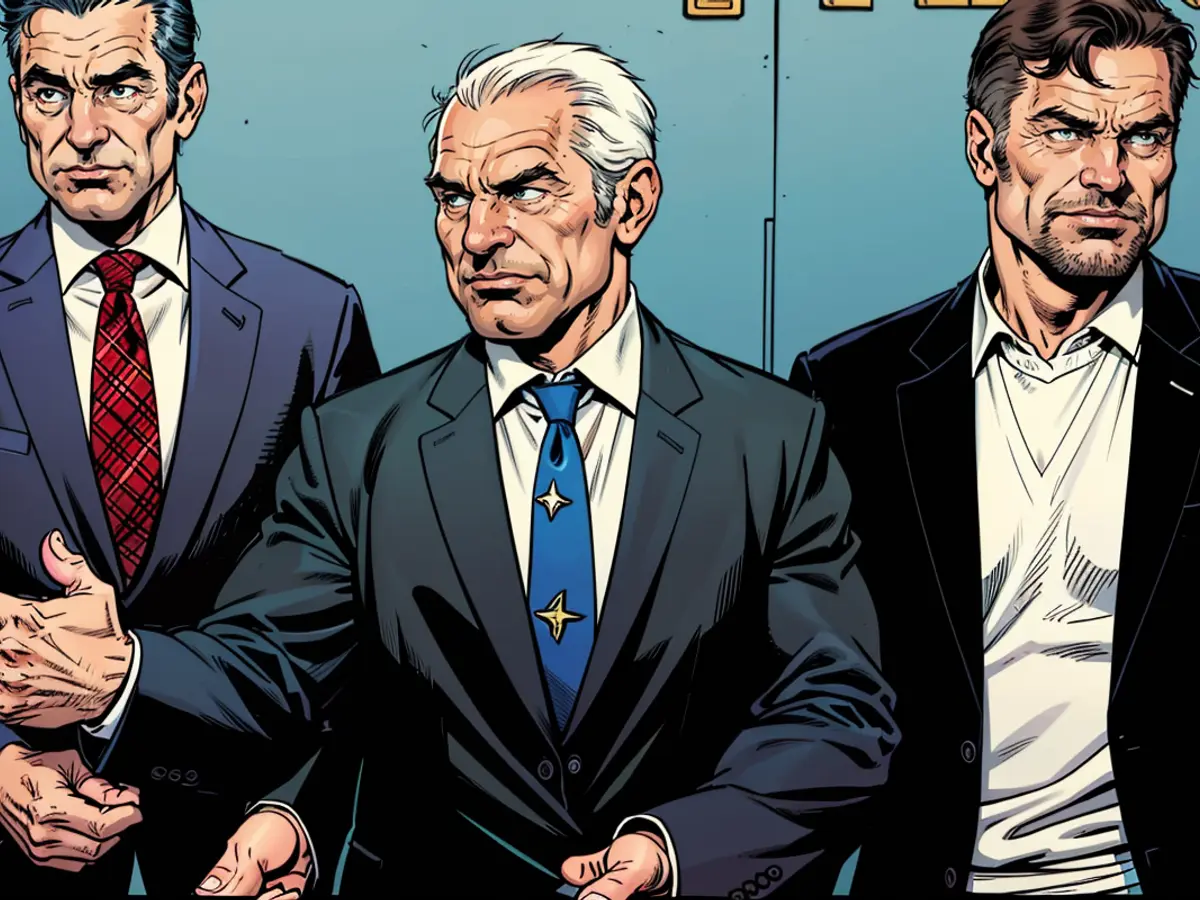Agreement on 2025 budget and economic stimulus package - Scholz sees coalition strengthened
In a 14-hour marathon session at the Chancellery, Scholz reached an understanding with Vice-Chancellor Robert Habeck (Greens) and Finance Minister Christian Lindner (FDP) in the early hours of Friday regarding the framework for the budget and stimulus package. Lengthy debates had taken place within the traffic light coalition prior to this. The agreement was made just in time before the parliamentary summer recess. A potential coalition breakdown, which could have also resulted in the failure of the talks among the traffic light parties, was averted by the government leaders.
"I am convinced that this understanding will strengthen the coalition," said Scholz. All three traffic light partners could "find themselves and the projects that are particularly important to them," emphasized the Chancellor. The draft budget is scheduled to pass through the cabinet on July 17. After the summer break, the Bundestag will deal with it, with a decision planned for the end of November.
A total of 23 meetings between the Chancellor, Vice-Chancellor, and Finance Minister took place in the Chancellery during the budget negotiations, according to Lindner. The coalition partners had spent approximately 80 hours in total.
The agreement goes beyond a mere budget outline: "We have understood each other anew on the common foundations of our government dealings," said the FDP leader. Habeck clarified that the coalition partners had not abandoned their work ethic during the discussions in the traffic light government.
Scholz, Lindner, and Habeck reported in unison about challenging and intense budget negotiations. The Chancellor said, "We don't make it easy for ourselves, we fight hard for the cause, and we seek compromises - sometimes half the night, sometimes the whole night," he said, adding, "Why? Because the alternative is simply not an alternative: losing our nerves, giving up, or abandoning responsibility."
For the budget, every stone has been turned, said Lindner. The agreement provides that the debt brake will not be waived. The federal government plans to take on an additional 44 billion euros in debt next year - and with a total budget volume of 481 billion euros, it will meet the debt limits in the Basic Law, according to Lindner. No state of emergency will be declared again - the FDP managed to push through against opposition, particularly from the SPD.
SPD Bundestag fraction leader Rolf Mützenich still holds the final word on the debt brake. He has reserved the right to enable an exception to the debt brake for a crisis resolution, said Mützenich on Friday morning. "A lot of artistic tricks were necessary to close the billion-euro gap in the budget for 2025," he said.
A portion of the budget gap will now be covered at the expense of the defense budget. Minister Boris Pistorius (SPD) must reportedly make do with five billion euros less than requested. The defense budget, currently at around 52 billion euros, is expected to increase slightly - according to rumors, by about a billion euros.
From 2028 onwards, the defense budget is expected to amount to around 80 billion euros, which, according to Scholz, will be fully funded from the regular budget and no longer from a special fund. This will ensure that Germany maintains the NATO goal of two percent of economic output in the long term.
SPD budget politician Andreas Schwarz named the small surplus in the budget a "disappointing number" in the "Tagesspiegel". The Green faction in the Bundestag also expressed displeasure over savings in expenditures for international development. "The wrong priorities were set there", explained Green budget politician Sven-Christian Kindler. Several social welfare organizations were also dissatisfied and criticized the lack of investments in the welfare state.
On the other hand, investments are planned in infrastructure, to the tune of 57 billion Euro at record levels. In addition, tax relief for citizens in the amount of 23 billion Euro is planned for the coming two years. In the growth package, moreover, measures such as incentives for working pensioners, overtime pay, and bureaucracy reduction are planned.
The opposition in the Bundestag criticized the agreement. It is only the "Burgfrieden of a exhausted coalition for a few days", said CDU leader Friedrich Merz. The "big loser" of the budget plans is the Bundeswehr. The AfD lamented "symbolic tax relief promises" from the federal government, as the tax burden would remain at a record high.
The FDP plays a crucial role in the budget negotiations, represented by Christian Lindner. Scholz, Habeck, and Lindner working tirelessly to reach an agreement, having numerous meetings. The budget involves a 44 billion euro increase in debt next year, adhering to the debt brake. Despite opposition, particularly from the SPD, the debt brake is maintained. The defense budget takes a hit, with a reduction in funding. From 2028, defense funding will increase while being fully funded from the regular budget. The SPD expresses dissatisfaction with savings in international development expenditures. On the contrary, there are plans for significant investments in infrastructure and tax relief for citizens. Critics from the opposition view the agreement as a temporary truce within the coalition.







